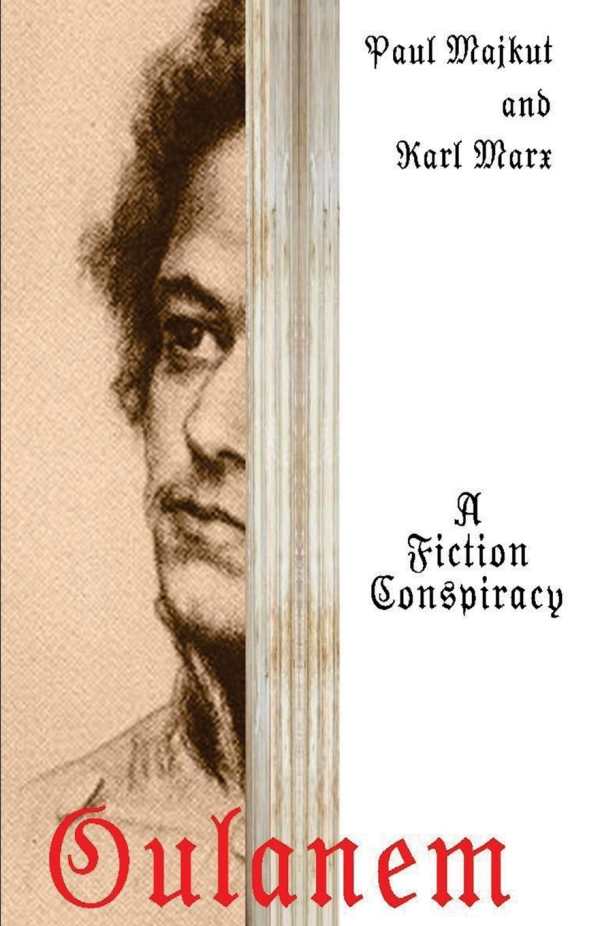
Oulanem
A Fictional Conspiracy
Majkut has done a superb job using Marx’s abandoned fragment to its fullest potential in this highly evocative and chilling narrative.
This unforgettable journey into the creative mind of Karl Marx spotlights what few political analysts have ever examined. Inspired by an obscure dramatic fragment written by Marx in 1837 while attending the University of Berlin, this experimental literary endeavor showcases a contemporary author’s illumination of a plot only partially developed yet potent in its caustic social messages. In Oulanem: A Fiction Conspiracy, a novel that elaborates on the single act of a play, Paul Majkut picks up where Marx left off.
A gothic tragedy that pits intelligent heroes against conniving villains, Majkut’s story initially focuses on a traveling academic but succumbs to interwoven subplots that attempt to crystallize human motivation. The story line is vague and somewhat meandering, preoccupied by the words themselves rather than following a concise plan of action. The result is a series of riveting snapshots: a sedated woman compromised by a man, a priest engaging in an illicit affair, an ongoing scholarly debate on every imaginable social ill.
Eccentric characters interact in sordid sexual interludes and subtle power struggles, an unusual cast that seems bent on traumatizing one another and seeking self-absorbed aggrandizement. Set in colorful nineteenth-century Austria, the historic buildup to extremist forms of government—fascist and communist—can be seen in the behind-the-scenes finagling in relationships.
Filled with dark humor and sarcastic statements, the book reveals much about Majkut’s opinion of his subject—a conceited professor named Oulanem—and the famous writer he has chosen to collaborate with. The words of the young Marx are placed in italics, comprising 7 percent of the novel. The story’s conversion from drama to narrative allows for greater freedom in character portrayal and, more importantly, descriptive detail.
Enlightening passages about the historically dated perception of “emotional” women and the common practice of laudanum dosing to placate as well as subdue them appear throughout this highly evocative and chilling narrative. Pieces of the past haunt the pages, creating a highly interpretive and innovative work that may garner widespread disagreement on what its supercharged words intend to convey. With language that is both provocative and often amusing, every measured phrase seems to seek a specific response:
Scheuermann opens a jar of Sten’s embalming fluid and raises it to just below his flared nostrils, inhales death and life deeply, and knows a solitary pleasure. The effect is ephemeral and meaningless when it passes, long enough to remind the apothecary that he has forgotten something. He cannot remember what is forgotten. He has only the memory that he has forgotten something.
Oulanem’s sole structural flaw may be its tendency to veil scenes rather than allow an unobstructed view. This stylistic technique has a particular appeal, however, for the powerful impressions add to the intrigue.
Majkut is an author of fiction and intellectual nonfiction. He has studied abroad and won awards for his work on religious and cultural topics. Though no one will know precisely what Marx may have wanted to express if he had finished the play, Majkut has done a superb job using the abandoned fragment to its fullest potential.
Reviewed by
Julia Ann Charpentier
Disclosure: This article is not an endorsement, but a review. The publisher of this book provided free copies of the book and paid a small fee to have their book reviewed by a professional reviewer. Foreword Reviews and Clarion Reviews make no guarantee that the publisher will receive a positive review. Foreword Magazine, Inc. is disclosing this in accordance with the Federal Trade Commission’s 16 CFR, Part 255.
